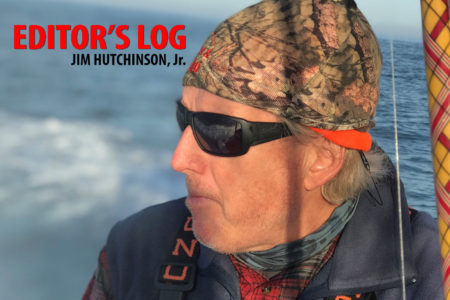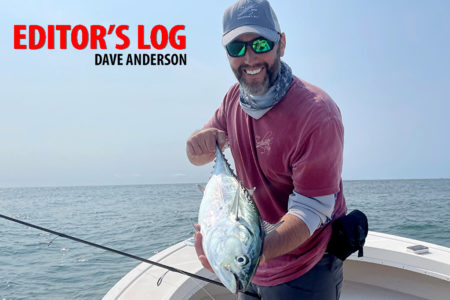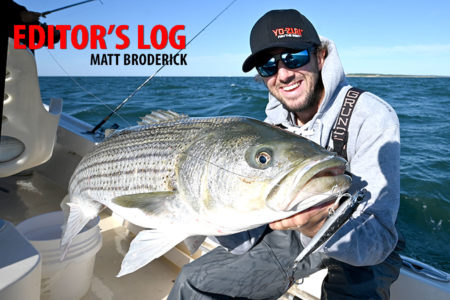While 2023 cutbacks to porgy and sea bass are tough pills to swallow, a newly implemented recreational reform initiative should help stave off wildly fluctuating reductions in the future. The effort to implement kinder, gentler new recreational harvest controls was spearheaded by the American Sportfishing Association (ASA) and other angling advocates in hopes of improving year-to-year stability in fluke, sea bass and porgy regulations.
“This is something that we’ve heard from the recreational fishing community through the public input process that exists in the fisheries management realm and it’s something that makes logical business sense,” said ASA’s Atlantic Fisheries Policy Director, Mike Waine, calling management stability “beneficial not only for the recreational anglers on the water but also the businesses that support those anglers and the pursuit of fishing.”
Not everyone is happy with these collective efforts to improve angler access to sustainable fisheries; a powerful non-profit environmental organization recently filed yet another lawsuit against the Department of Commerce and NOAA Fisheries seeking declaratory and injunctive relief from these new recreational harvest levels and associated management measures.
“Natural Resources Defense Council (NRDC) on behalf of its adversely affected members hereby challenges the unlawful decision of the National Marine Fisheries Service (NMFS) to approve the Mid-Atlantic Fishery Management Council’s (“the Council”) Framework Adjustment 17 to the Summer Flounder, Scup, and Black Sea Bass Fishery Management Plan (Framework 17), because it fails to comply with the annual catch limit requirement as mandated by the Magnuson-Stevens Fishery Conservation and Management Act,” the lawsuit states.
One adversely affected angler cited by name in the lawsuit is retired (JPMorgan Chase, Lehman Brothers, and Barclays Capital) New York City securities attorney and NRDC member Charles Witek, who according to the lawsuit keeps his 34 Topaz docked in Babylon, NY. “Mr. Witek derives significant enjoyment from fishing for these stocks and has a strong interest in maintaining healthy levels of these stocks and protecting their role in the marine ecosystem, including through the application of annual catch limits to prevent overfishing,” the NRDC lawsuit states, adding “Mr. Witek and his family also regularly enjoy eating the fish that he harvests pursuant to recreational management measures, including applicable seasons and length and bag limits.”
“Mr. Witek stands to be particularly injured because, by failing to comply with the annual catch limit requirement, Framework 17 threatens unsustainable fishing of the affected stocks which would impact Mr. Witek’s recreational activities,” the lawsuit claims. Apparently, Mr. Witek is pained by not seeing more rigid measures applied to further reduce bag limits and available fishing days for black sea bass, porgies and fluke. That’s not necessarily a belief shared by many saltwater anglers, or by members of the recreational fishing industry either.
“The sportfishing community is in need of solutions to address chronic challenges associated with managing recreational fisheries with data limitations and high fish availability,” said Waine. “We worked with industry leaders to develop the harvest control rule as a workable fix and during the 2-year review process some of these other groups offered nothing productive other than an unengaged defense of status quo,” Waine said, while adding “status quo management has been unsuccessful by any standard, and thankfully NOAA Fisheries acknowledges that.”
When the Magnuson-Stevens federal fisheries law was reauthorized in 2007, it required rigid annual catch limits to be levied on recreational fishermen; if harvest data compiled through random sampling found that the government-imposed limit was exceeded, strict accountability measures (payback) would be applied on anglers. Thus, the resulting 16 years of “status quo” fisheries management has been what I would call “injurious” to New Jersey’s diverse and inclusive recreational fishing community.
But for one aggrieved New York boater and his personal injury lawyers at NRDC, I guess sticking it to the “common man” just feels good.




